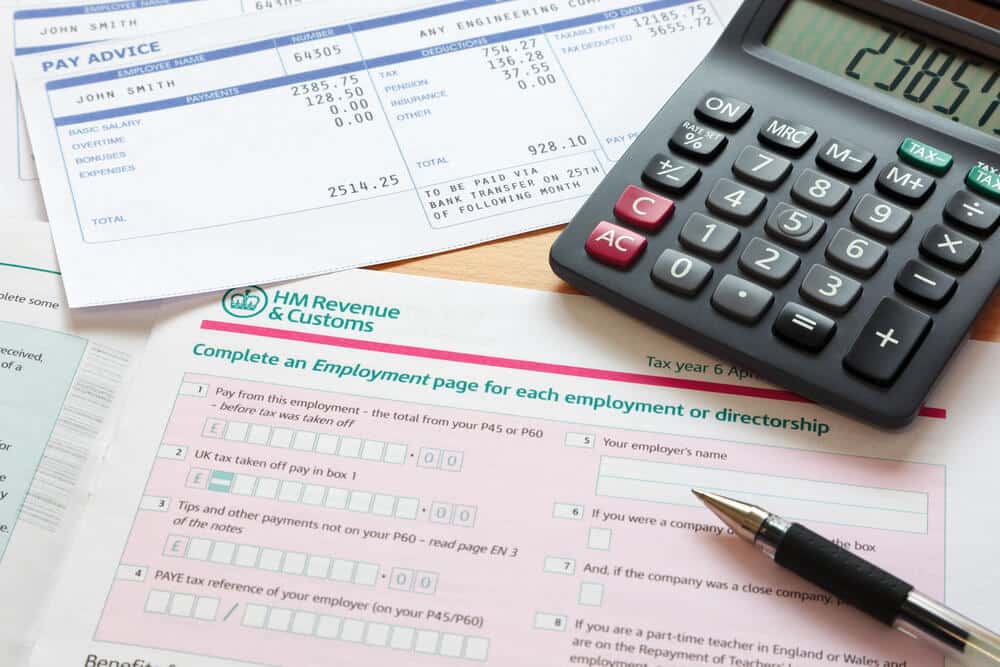If you’ve been threatened with a Direct Earnings Attachment, you’re probably eager to stop it from going ahead.
The good news is it is possible to stop a Direct Earnings Attachment – but it’s essential that you understand when and how to act to do so.
In this guide, we’ll explore stopping Direct Earnings Attachments in detail.
When you’re finished reading, you’ll be able to take the action needed – or seek out additional debt advice if you need more help.
What is a Direct Earnings Attachment?
A Direct Earnings Attachment (DEA) is a way the Department for Work and Pensions (DWP) has of collecting money that it’s owed.
A DEA is similar to an ‘attachment of earnings order’ – although there are differences.
With an attachment of earnings order, a creditor (a company you owe money to) has to go through a court process to get a County Court Judgment issued against you.
If you still don’t pay the money owed, they can then go back to the court to ask for an attachment of earnings order.
If successful, the court makes sure money is deducted from your wages or benefits to pay off what you owe.
A DEA works in a similar way – but the DWP doesn’t have to get a court order to make it happen.
Instead, they can handle the process themselves – applying directly to your employer and taking deductions directly from your weekly or monthly earnings.
Since there’s no court action involved for the DWP, a Direct Earnings Attachment order is far quicker – and you have far fewer chances to stop the process.
What kind of DWP debts can be collected using a DEA?
A Direct Earnings Attachment can be used to collect a range of different DWP debts, including:
- Benefit overpayments (such as working tax credit or child tax credits)
- Social fund loans
- Civil penalties
- Universal Credit advance payments
- Budgeting loans
If you have debts that are owed to HMRC (such as income tax, National Insurance contributions or student loan contributions), they can also recover money owed in a similar way – using a ‘Direct Earnings Notice’ (DEN).
Likewise, any child maintenance debt can be collected by the Child Maintenance Service using a Deduction from Earnings Order (DEO).
In theory, it is also possible for the DWP to collect overpaid housing benefit using a DEA too.
When a DEA is set up, the DWP may check with your local authority to see if you owe any overpaid housing benefit.
If you do, they can roll this debt into the amount they’re collecting from you – potentially extending the time that a DEA would last.
Debt Calculator
How much can the DWP take using a Direct Earnings Attachment?
The biggest reason people are eager to stop a Direct Earnings Attachment from going ahead is the amount of money that can be taken from your wages if one is put into action.
A DEA takes money from an employee’s earnings after other deductions have been made.
So, you’ll still make income tax payments, National Insurance Contributions, guaranteed minimum pension contributions, stakeholder pension contributions, and any other deductions.
The rules around DEAs say that you must always be left with at least 60% of the wages that are left after these contributions – this is known as a ‘protected earnings limit’.
However, this still means a very large reduction in your net earnings (the amount you ‘take home’).
For example, if you earn £1,800 per month, that means the 60% protected earnings limit is just £1,080 – a very significant reduction in what you would have to live on.
Can the DWP use a DEA to collect money from any type of income?
A company’s payroll is often very complex since there are lots of different kinds of income that need to be considered.
For instance, an employee’s net earnings could be made up of a basic salary, commission, holiday pay, maternity pay, and many other types of pay, even in just one week or month.
The DWP can only use a DEA to collect from certain kinds of income, including:
- General employment income
- Bonuses
- Commission
- Sick pay and compensation
- Overtime
- Any weeks holiday pay you are paid in lieu
However, there are certain things that may go towards your net wage that a DEA cannot take money from, including:
- Statutory maternity pay
- Statutory paternity pay
- Statutory redundancy pay
- Statutory adoption pay
- Repaid working expenses (such as reclaimed transport, fuel or equipment buying costs)
How do I know if I’m going to get a Direct Earnings Attachment?
If the DWP thinks you have received any benefit overpayments, they will write to you to let you know.
Overpayments can happen for a huge range of reasons – but they happen most commonly because the DWP has underestimated your earnings for the tax year.
The first step in claiming overpaid benefits back is to simply ask you to repay the money.
If you don’t respond, the DWP will continue to write to you and may start chasing the debt by calling, emailing, or messaging you, asking you to get in touch.
If you don’t talk to them about the debt, they will carry on with debt collection proceedings.
Reminders will explain that you initially have 30 days to pay the debt – but you’ll find they’re willing to discuss a payment plan at this stage.
If this time passes and you haven’t arranged payment or a payment plan, they will send you a letter informing you of their intention to use a Direct Earnings Attachment to recover what they think you owe. The letter will contain details about the debt, including how much is owed and why, as well as information about the DEA process.
The amount of time between the DWP warning you about starting the DEA process and the process actually being started can vary between 2-4 weeks and, according to the DWP, depends on the exact circumstances relating to the debt. When the DEA is issued, and instructions are sent to your employer, the DWP will also inform you that this is taking place.
Is it possible to stop a Direct Earnings Attachment?
It is possible to stop a Direct Earnings Attachment – but it all depends on how far into the process you are.
If the DWP have written to you to let you know about a benefits overpayment and asked you to pay it back, you can easily avoid a DEA by calling them and setting up a payment plan.
Don’t worry if the letter says they want a full repayment – they’re almost always willing to discuss a payment schedule.
If you haven’t responded to the initial request for repayment and they threaten you with a DEA, you should still usually be able to call and talk to them about a repayment plan.
If this is the case, it’s absolutely essential that you do it as quickly as possible. Since there is no definite timescale for the DWP commencing DEA proceedings, you’ll need to act quickly.
Realistically, the only time you’re likely to succeed in stopping a DEA is before it is set up with your employer.
If they begin proceedings with your employer, your employer than become legally obliged to set the DEA deduction up.
When Direct Earnings Attachments are set up, the DWP almost always keeps them in place – even if you contact them to talk about setting up an alternative way of paying.
This is because a DEA guarantees that they get their money back – so they’re usually more than happy to let it run its course.
What happens if you think a DEA has been issued in error?
If you think the DWP are chasing you for a debt that isn’t correct, it can be tempting to ignore the letters and hope that things will put themselves right. Unfortunately, this won’t happen.
Even if a benefit overpayment debt is incorrect, the DWP will consider it correct unless you challenge it.
Again, it’s best to challenge any decision you think is incorrect as quickly as possible – as it often gets much harder the more time goes by.
Respond to letters quickly and be prepared to show evidence that the benefits were correct.
If you find yourself with a DEA, but you think it’s incorrect, you should start by checking your DEA notice and any related documents you’ve received from the DWP.
If you still believe the DEA has been issued by mistake, contact the DWP immediately.
You’ll be expected to explain why you think a mistake has happened. You will almost certainly need to show evidence that proves the DEA has been issued in error too.
At this stage, it’s good to seek out professional debt advice too. The person or service you talk to will help to make sure you’re sending all the evidence required and will possibly even be able to help you write a letter of complaint to the DWP.

Why choose YourDebtExpert?
- Write off unsecured debts over £5,000
- Stop interest and charges soaring
- Reduced payments from £85 per month
Can I stop a Direct Earnings Attachment: A Summary
As you can now see, a Direct Earnings Attachment is a quick and very effective way for the Department for Work and Pensions to collect money, they feel is owed to them. It can have a significant impact on your monthly or weekly pay so it can therefore put a very tight squeeze on your finances.
What’s more, the DEA process is much quicker than similar processes done through the court – so you don’t have much time to act if you want to avoid one.
You can stop a Direct Earnings Attachment – but you have to act quickly to either challenge the debt or set up a payment plan that’s on your terms.
If you don’t and the DEA goes ahead, the DWP is unlikely to discuss other ways of paying – unless it’s been issued in error.





